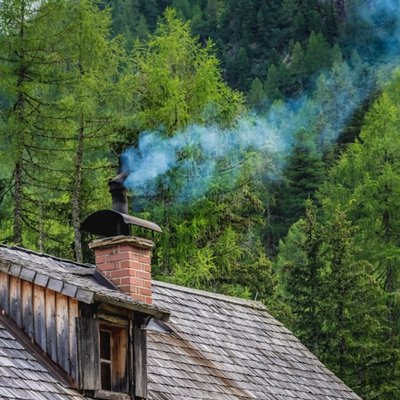- Dictionary
chav
A noun is a word referring to a person, animal, place, thing, feeling, or idea (e.g., man, dog, house).
1. (pejorative) (slang) (general) (United Kingdom)
An offensive word or phrase used to degrade a person or group of people based on race, gender, sexual preference, etc. (e.g., redneck).
A very informal word or phrase used by a particular group or community as a substitute for standard language (e.g., joint, john).
Regionalism used in the United Kingdom
a. el naco (M), la naca (F) (pejorative) (slang) (Central America) (Mexico)
(m) means that a noun is masculine. Spanish nouns have a gender, which is either feminine (like la mujer or la luna) or masculine (like el hombre or el sol).
(f) means that a noun is feminine. Spanish nouns have a gender, which is either feminine (like la mujer or la luna) or masculine (like el hombre or el sol).
An offensive word or phrase used to degrade a person or group of people based on race, gender, sexual preference, etc. (e.g., redneck).
A very informal word or phrase used by a particular group or community as a substitute for standard language (e.g., joint, john).
Regionalism used in Central America: Guatemala, El Salvador, Honduras, Nicaragua, Costa Rica, and Panama
Regionalism used in Mexico
Those bloody chavs broke my windscreen!¡Esos malditos nacos me rompieron el parabrisas!
b. el chacal (M), la chacal (F) (colloquial) (pejorative) (Panama)
(m) means that a noun is masculine. Spanish nouns have a gender, which is either feminine (like la mujer or la luna) or masculine (like el hombre or el sol).
(f) means that a noun is feminine. Spanish nouns have a gender, which is either feminine (like la mujer or la luna) or masculine (like el hombre or el sol).
A word or phrase that is commonly used in conversational speech (e.g., skinny, grandma).
An offensive word or phrase used to degrade a person or group of people based on race, gender, sexual preference, etc. (e.g., redneck).
Regionalism used in Panama
My aunt Ermita is a old posher who thinks that all the kids who live in this neighbourhood are chavs.La tía Ermita es una vieja yeyesita que piensa que todas los chicos que viven en este barrio son unos chacales.
c. el flaite (M), la flaite (F) (pejorative) (slang) (Chile)
(m) means that a noun is masculine. Spanish nouns have a gender, which is either feminine (like la mujer or la luna) or masculine (like el hombre or el sol).
(f) means that a noun is feminine. Spanish nouns have a gender, which is either feminine (like la mujer or la luna) or masculine (like el hombre or el sol).
An offensive word or phrase used to degrade a person or group of people based on race, gender, sexual preference, etc. (e.g., redneck).
A very informal word or phrase used by a particular group or community as a substitute for standard language (e.g., joint, john).
Regionalism used in Chile
I'm not going to that club. It's always full of chavs.No voy a ese antro. Siempre está lleno de flaites.
d. el guachín (M), la guachina (F) (pejorative) (slang) (Argentina)
(m) means that a noun is masculine. Spanish nouns have a gender, which is either feminine (like la mujer or la luna) or masculine (like el hombre or el sol).
(f) means that a noun is feminine. Spanish nouns have a gender, which is either feminine (like la mujer or la luna) or masculine (like el hombre or el sol).
An offensive word or phrase used to degrade a person or group of people based on race, gender, sexual preference, etc. (e.g., redneck).
A very informal word or phrase used by a particular group or community as a substitute for standard language (e.g., joint, john).
Regionalism used in Argentina
There are always lots of chavs causing trouble in this street.Siempre hay muchos guachines haciendo problemas en esta calle.
e. el cani (M) (pejorative) (slang) (Spain)
(m) means that a noun is masculine. Spanish nouns have a gender, which is either feminine (like la mujer or la luna) or masculine (like el hombre or el sol).
An offensive word or phrase used to degrade a person or group of people based on race, gender, sexual preference, etc. (e.g., redneck).
A very informal word or phrase used by a particular group or community as a substitute for standard language (e.g., joint, john).
Regionalism used in Spain
I don't know why my sister is hanging out with all those chavs.No sé por qué mi hermana anda con todos esos canis.
f. el plancha (M), la plancha (F) (pejorative) (slang) (Uruguay)
(m) means that a noun is masculine. Spanish nouns have a gender, which is either feminine (like la mujer or la luna) or masculine (like el hombre or el sol).
(f) means that a noun is feminine. Spanish nouns have a gender, which is either feminine (like la mujer or la luna) or masculine (like el hombre or el sol).
An offensive word or phrase used to degrade a person or group of people based on race, gender, sexual preference, etc. (e.g., redneck).
A very informal word or phrase used by a particular group or community as a substitute for standard language (e.g., joint, john).
Regionalism used in Uruguay
From what I saw on social media, Selena's new boyfriend is a real chav.A juzgar por lo que vi en las redes sociales, el nuevo novio de Selena es un tremendo plancha.
Examples
Other Dictionaries
Explore the meaning of chav in our family of products.
Random Word
Roll the dice and learn a new word now!
Want to Learn Spanish?
Spanish learning for everyone. For free.





















